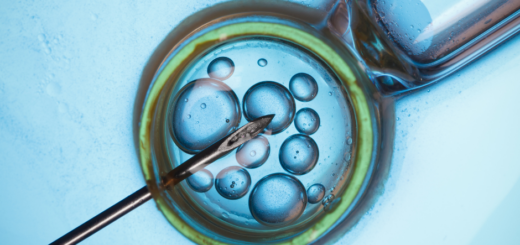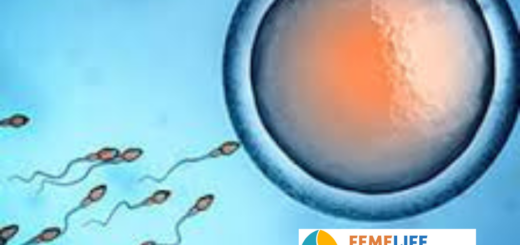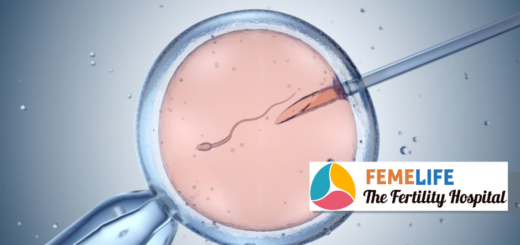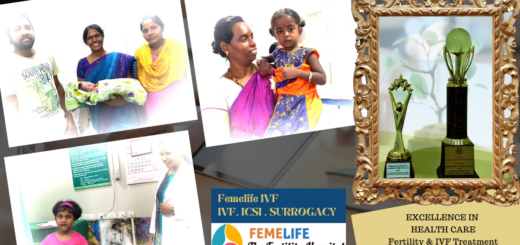Lupus And Infertility In Men & Women

Lupus is a progressive disease affecting various systems of body over years. Predominantly, it affects young women of childbearing age although men may get involved. Heart, lungs, joints, skin, kidneys, blood cells, brain can be damaged by this disease. In addition, it can affect the reproductive system in women and men and lead to infertility. Lupus and infertility are connected due to various causes like primary ovarian failure in female and testicular damage in male.
Who typically gets lupus?
Young females are more prone to get this disease. However, it can affect any one from childhood to old age. African-Americans, Asians, Hispanics, and Native Americans are having higher risk of disease manifestation. There is a neonatal variant of lupus that affects new-born babies as well.
What is the life expectancy of a female with lupus?
Almost 90% of affected individuals have normal life span due to the recent advances in treatment. Death rate and complications have come down due to early diagnosis and timely intervention. Treatment for Lupus in women can ensure 10 years of survival from the point of diagnosis.
What are the 6 signs of lupus?
- Fever
- Fatigue
- Weight loss
- Skin patches
- Muscle
- Breathing difficulties
What are the types of Lupus?
There are four main types of lupus: neonatal, discoid, drug-induced, and systemic lupus erythematosus (SLE)
How does a person get lupus and infertility?
Primarily it is a consequence of deposition of autoantibodies and immune complexes, leading to organ damage. Different causes have been identified as;
Genetic – Genetic predisposition is seen within families, first-degree relatives and twins. Some individuals are at more risk of lupus due to the family background.
Hormonal – Oestrogens, progesterone, testosterone, dehydroepiandrosterone (DHEA), and prolactin hormones can increase in immune system responsiveness.
Environmental factors – Viruses like EBV and ultra-violet (UV) light can stimulate cells producing antibody. Smoking, silica, and some hair products and dyes are also thought to be possible triggers of lupus.
Immune abnormalities– Inappropriate immune responsiveness may trigger this response.
Drug induced – Certain medications in patients, may invoke the symptoms of SLE or directly cause drug-induced lupus.
How are you tested for lupus?
SLE is diagnosed on basis of signs and symptoms, laboratory testing, and diagnostic testing.
- ANA testing is essential in the diagnosis of SLE – Anti-dsDNA and anti-Smith (Sm) are two specific auto anti-bodies
- Complete blood count (CBC) with differential,
- Complete metabolic profile,
- Urinalysis to determine the creatinine clearance and the presence of proteinuria or active sediment
- Testing of complement levels (C3 and C4) as potential markers
Management
Treatment of signs and symptoms of lupus depends on the type and the severity of disease. General recommendations for all patients include sun protection, proper diet and nutrition, exercise, smoking cessation, appropriate immunizations, and management of comorbid conditions.
Is lupus a serious illness?
Lung’s involvement causes painful breathing, coughing, and shortness of breath. Death in lupus is due to cardiac complications and severe infections.
Lupus and Infertility
Systemic lupus erythematosus (SLE) is a chronic inflammatory disease that can affect fertility with a female-to-male incidence ratio of 9: 1. The causes of infertility in lupus are many. They are:
Older age: Women with lupus may delay conception due to the stress of disease. At times, they are advised to delay pregnancy while under treatment.
Primary ovarian failure: Due to autoimmune destruction they may present with ovarian failure. causes or drug induced and it presents with amenorrhoea, although not all patients with amenorrhoea or menstrual disturbance have ovarian failure
Menstrual disturbances: Irregularities in menstruation may be related to the disease process or therapy induced. Amenorrhoea may occur due to cyclophosphamide (CYC) treatment causing ovarian failure. At times they may have severe bleeding during periods. In addition, they may have associated thyroid disorder causing these problems.
Cervical and vaginal infections: Often women with SLE suffer from added infections. They have high risk of sexually transmitted infection. Infection with Chlamydia causes fallopian tube blockage and infertility.
Spontaneous abortions and implantation failure
Lupus and infertility in men:
damage by SLE to the seminiferous tubules
loss of negative feedback upon the pituitary gland
presence of anti-sperm antibodies causing impairment of spermatogenesis
Lupus nephritis results in erectile dysfunction with reduced spermatogenesis
Prevention of infertility in men and women
Gonadotrophic receptor hormone agonist leuprolide before cyclophosphamide therapy
Using lowest dose of CYC or alternative therapy if possible
Oocyte storage
IVF treatment or ICSI
Testosterone for male fertility
Treatment of lupus
| Nonsteroidal anti-inflammatory drugs (NSAIDs) | Over the counter pain killers, can treat symptoms and reduce inflammation |
| Corticosteroids | Tablets, injections and creams help rashes and kidney involvement |
| Antimalarial drugs | Used for fatigue and skin and joint problems |
| Monoclonal Antibody | Can treat severe lupus by reducing antibodies |
| Immunosuppressive agents/chemotherapy | These drugs are powerful suppressor of antibody reactions, side effects are more |

















